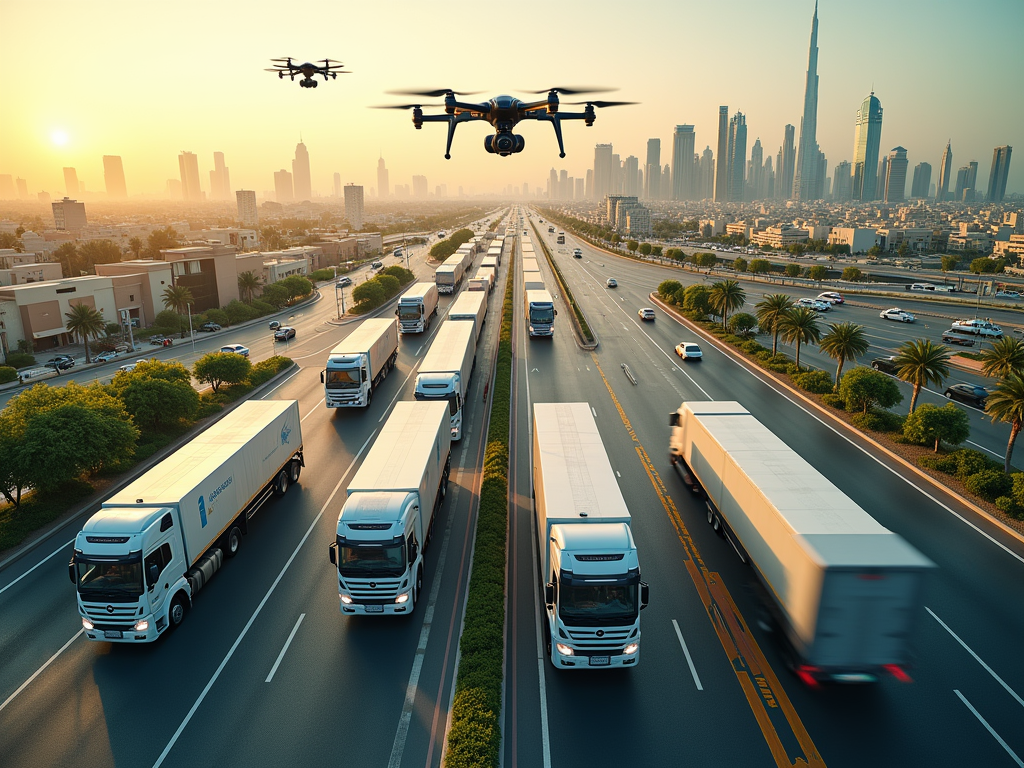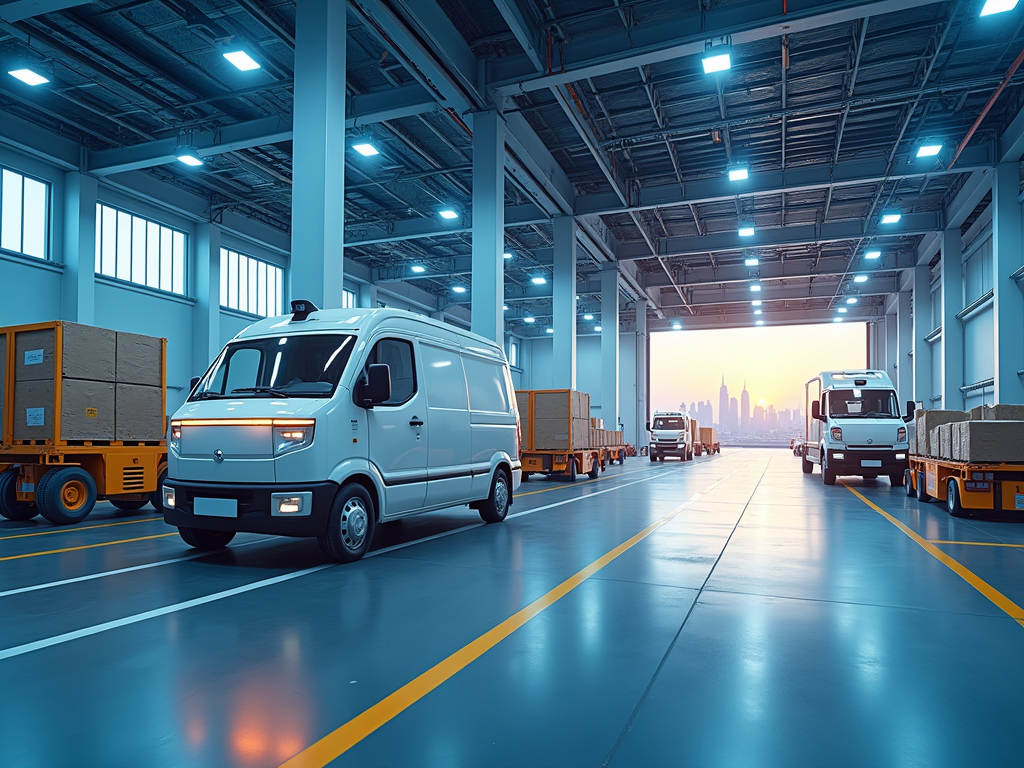Dubai stands at the forefront of technological innovation, particularly in the logistics sector driven by artificial intelligence (AI). The integration of AI in logistics not only enhances efficiency and reduces costs but also facilitates better decision-making and improves customer satisfaction. As a global trade hub, Dubai leverages AI to revolutionize its logistics systems, ensuring timely deliveries, optimized routes, and smarter inventory management. This article explores the emerging trends, technologies, and implications of AI-powered logistics in Dubai, setting a benchmark for other global cities.
Understanding AI in Logistics

Artificial Intelligence represents a groundbreaking advancement in logistics management, offering innovative solutions to age-old challenges. AI in logistics encompasses several functionalities including predictive analytics, automated warehousing, and real-time tracking. These capabilities significantly improve communication and collaboration across supply chains, reduce operational inefficiencies, and enhance predictive maintenance. The AI models leverage vast data sets to forecast demand, enabling better inventory management and reducing wastage. Furthermore, the ability to analyze consumer behavior allows companies to tailor their services more closely to customer preferences, thereby fostering stronger relationships.
Several key technologies play a crucial role in the implementation of AI-powered logistics systems in Dubai. These include:
- Big Data Analytics: This involves evaluating large volumes of data to identify patterns and trends that inform logistics strategies.
- Machine Learning: A form of AI that enables systems to learn from data inputs to make accurate predictions without manual intervention.
- Internet of Things (IoT): Connected sensors and devices that provide real-time data sharing across the supply chain.
- Robotics: Automation in warehouses using robots for picking, packing, and sorting goods, resulting in enhanced efficiencies.
- Blockchain: Provides transparency and security in transactions, crucial for tracking goods throughout the supply chain.
The Impact on Operational Efficiency

The impact of AI-powered logistics systems on operational efficiency is profound. Companies in Dubai can expect to see significant reductions in lead times and improvements in asset utilization. By employing AI algorithms to optimize logistics routes, businesses can minimize fuel consumption and decrease delays caused by traffic or weather conditions. Moreover, AI enhances inventory accuracy and turnover rates by predicting the demand for products more accurately, thus enabling businesses to stock only what is necessary. This not only saves costs but also drives profitability. Enhanced forecasting allows logistics companies to be agile, responding swiftly to market changes and evolving consumer needs.
Challenges and Considerations
Despite the myriad benefits of AI in logistics, several challenges must be addressed for successful implementation. Firstly, the lack of skilled workforce poses a significant barrier; businesses require personnel who are not only tech-savvy but also knowledgeable about logistics operations. Another challenge lies in data privacy and security; as logistics firms become more data-dependent, the necessity for robust cybersecurity measures grows. Additionally, the capital investment required for AI technologies can be daunting for smaller companies. Lastly, integrating AI with existing systems might result in operational disruption; companies must ensure a seamless transition to maintain business continuity while adapting to new technologies.
Conclusion
Dubai’s endeavor into AI-powered logistics systems heralds a new era of innovation that can serve as a global model. With its strategic location and commitment to technological advancement, Dubai is poised to further enhance its status as a logistics hub. While challenges exist, the potential for increased efficiency, improved customer satisfaction, and innovative solutions makes AI a transformative element in the logistics landscape. The shift toward automation and intelligence in logistics will ultimately drive economic growth and increase competitiveness in a rapidly-evolving global market.
Frequently Asked Questions
1. What are the main benefits of AI in logistics?
AI in logistics offers several benefits including enhanced operational efficiency, improved demand forecasting, reduced costs, and better customer service. By automating processes and leveraging data analytics, businesses can streamline their supply chains and respond more effectively to market changes.
2. How does AI improve inventory management?
AI improves inventory management through predictive analytics that forecast demand, helping businesses stock the right amount of products. This minimizes excess inventory and reduces wastage, leading to cost savings and improved cash flow.
3. What challenges do companies face when implementing AI in logistics?
Companies face challenges such as a lack of skilled workforce, data privacy concerns, high capital investment requirements, and potential disruptions during the integration of new systems with existing operations.
4. How is Dubai positioning itself as a leader in AI logistics?
Dubai is investing in smart technologies, infrastructure, and initiatives to promote innovation and research in AI-powered logistics, aiming to enhance its efficiency as a global trade hub and attracting investment in high-tech logistics solutions.
5. What role do advanced technologies like IoT and blockchain play in AI logistics systems?
IoT enables real-time data sharing across the supply chain, enhancing visibility and tracking. Blockchain ensures transparency and security in transactions, crucial for trust and reliability in logistics operations.
